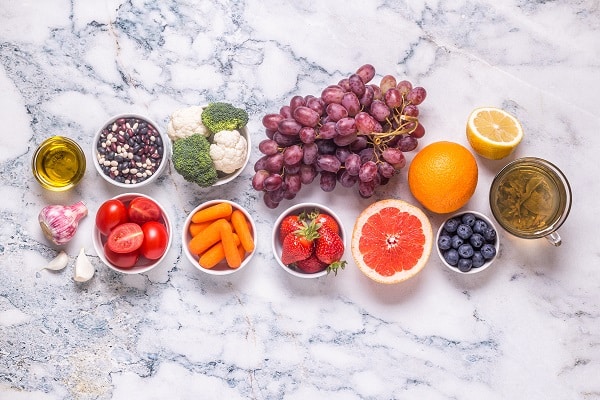As a society, everyone is becoming increasingly aware of the significant role diet plays in overall health. One area that has received much attention is the relationship between your dietary habits and the risk of developing cancer. While it’s true that not all types of cancer are directly influenced by diet, a substantial body of research suggests that your dietary choices can affect your chances of developing many forms of this disease. This article explores these connections, focusing on the importance of preventive measures, particularly diet-related, to reduce cancer risk.
Contents
Understanding Cancer And Diet

Cancer is a disease characterized by the uncontrollable growth of abnormal cells in the body, potentially leading to life-threatening complications. It’s important to understand that diet alone can’t wholly determine whether we develop cancer. However, several scientific studies have pointed towards a strong connection between diet and an increased or decreased risk of certain cancers. For example, diets high in processed and red meats have been linked to an increased risk of colorectal cancer, while diets rich in fruits and vegetables can lower the risk of various types of cancers.
While many have quickly simplified the relationship between cancer and diet to a single food or nutrient, it’s critical to understand that it’s more complex than that. It’s not about one ‘superfood’ that will magically ward off cancer or one ‘bad’ food that will cause it. Instead, it’s about your overall dietary pattern— the variety of foods you eat regularly. Moreover, many cancer and diet myths circulate in the media, causing unnecessary fear and confusion. It’s important to base dietary decisions on scientifically proven facts rather than unsupported claims.
The Importance Of A Balanced Diet

A balanced diet gives your body all the nutrients it needs to function correctly. This includes a mix of proteins, carbohydrates, fats, and sufficient vitamins and minerals. Maintaining a balanced diet provides your body with the tools it needs to regulate cell growth, repair damaged cells, and promote overall health, all of which can contribute to cancer prevention.
The major components of a balanced diet that can help in cancer prevention include fruits and vegetables, whole grains, and lean proteins. Fruits and vegetables are packed with antioxidants and phytochemicals that protect your cells from damage that can lead to cancer. Whole grains provide us with dietary fiber, which helps maintain a healthy digestive system, potentially reducing the risk of colorectal cancer. Lean proteins, including fish, poultry, and plant-based proteins, help repair and regenerate body cells, contributing to a healthy immune system that can fight off potential cancer cells.
Superfoods For Cancer Prevention

The term “superfood” describes foods that are rich in nutrients and have potential health benefits. Many superfoods contain antioxidants and other compounds that can help reduce cancer risk. These include berries, cruciferous vegetables like broccoli and cauliflower, leafy greens, and legumes. These foods contain various nutrients and antioxidants that can protect our cells from damage, reduce inflammation, and aid in the elimination of carcinogens.
Integrating these superfoods into your daily diet can be simpler than you think. For example, adding berries to your morning cereal or yogurt, incorporating leafy greens into your salads and sandwiches, or using legumes as a protein source are all easy ways to get these foods’ cancer-fighting benefits. It’s not about drastically changing your diet overnight but making small, gradual changes that can significantly impact you over time.
Harmful Foods to Avoid

While some foods can lower your cancer risk, others can increase it. Studies have shown that diets high in processed meats, such as sausages and hot dogs, and red meats, like beef and lamb, can increase the risk of certain types of cancer, including colorectal cancer. These foods often contain compounds that can lead to DNA changes in our cells, increasing the risk of cancer development.
In addition to processed and red meats, consuming large amounts of alcohol and foods high in added sugars can also increase cancer risk. Alcohol consumption has been linked to several types of cancer, including breast and oral cancers. At the same time, high sugar intake can lead to obesity, a significant risk factor for many types of cancer. It’s essential to balance the enjoyment of these foods and drinks with the understanding that moderation is key. Small changes, like reducing the sugar in your coffee or opting for chicken or fish instead of red meat, can significantly reduce your cancer risk.
Hydration And Cancer Prevention

Water is crucial for our overall health, and its role also extends to cancer prevention. Proper hydration helps in the efficient function of every body system, from circulation and digestion to the absorption of nutrients and elimination of waste. When these systems function well, it reduces the risk of certain cancers, especially those related to the digestive system.
Drinking adequate water can also help maintain a healthy weight. Overweight and obesity are significant risk factors for several types of cancer. Proper hydration can support weight management strategies by helping to control appetite and boost metabolism. While the amount of water each person needs can vary, a general guideline is to aim for at least eight glasses per day and adjust based on individual needs and physical activity levels.
The Role Of Regular Exercise

Exercise is beneficial for maintaining a healthy weight and heart health and plays a significant role in cancer prevention. Regular physical activity can help regulate hormone levels in our bodies, reduce inflammation, and aid digestion – all factors that can reduce cancer risk.
The type of exercise does not need to be intense or long-duration to have health benefits. Even moderate activities, such as brisk walking, cycling, or swimming, can benefit significantly if done regularly. The key is finding an activity you enjoy and can incorporate into your lifestyle. Aiming for at least 150 minutes of moderate-intensity or 75 minutes of high-intensity exercise per week is recommended.
The Power Of Lifestyle Change

Adopting a healthy lifestyle is one of the most powerful tools for cancer prevention. It’s about healthy eating or regular exercise and how these and other positive habits work together. Sleep, stress management, and avoiding tobacco and excessive alcohol are crucial in cancer prevention.
Making lifestyle changes can seem daunting, but they don’t have to happen simultaneously. Small, incremental changes often yield more sustainable results. Start by identifying one or two areas you’d like to work on, whether incorporating more fruits and vegetables into your diet, taking regular breaks from sitting, or improving your sleep hygiene. With persistence, these small changes can become new habits, significantly reducing your cancer risk.
Regular Check-Ups And Cancer Prevention

Regular health screenings are a critical part of cancer prevention. Early detection of changes in the body can significantly improve the effectiveness of treatment and, in some cases, can prevent cancer from developing further. The type and frequency of screenings you need will depend on various factors, including your age, gender, family history, and lifestyle habits.
Regular communication with your healthcare provider is essential. They can provide personalized advice and guidance based on your specific risk factors and health status. Remember, while this article provides general advice on dietary and lifestyle habits for cancer prevention, your healthcare provider is the best source of information for your individual needs.
The Bottom Line
In conclusion, it’s essential to understand that while we cannot control all factors contributing to cancer risk, we have significant control over our diet and lifestyle. The choices we make every day can add up over time, significantly impacting our risk of developing cancer. We can significantly reduce our cancer risk by adopting a balanced diet rich in fruits, vegetables, and whole grains, staying hydrated, exercising regularly, avoiding harmful foods, and making other positive lifestyle changes. Let’s make conscious dietary and lifestyle choices today for a healthier tomorrow.


